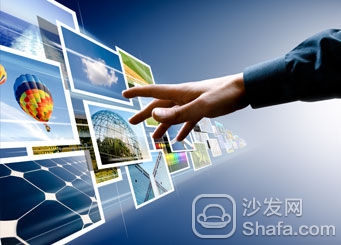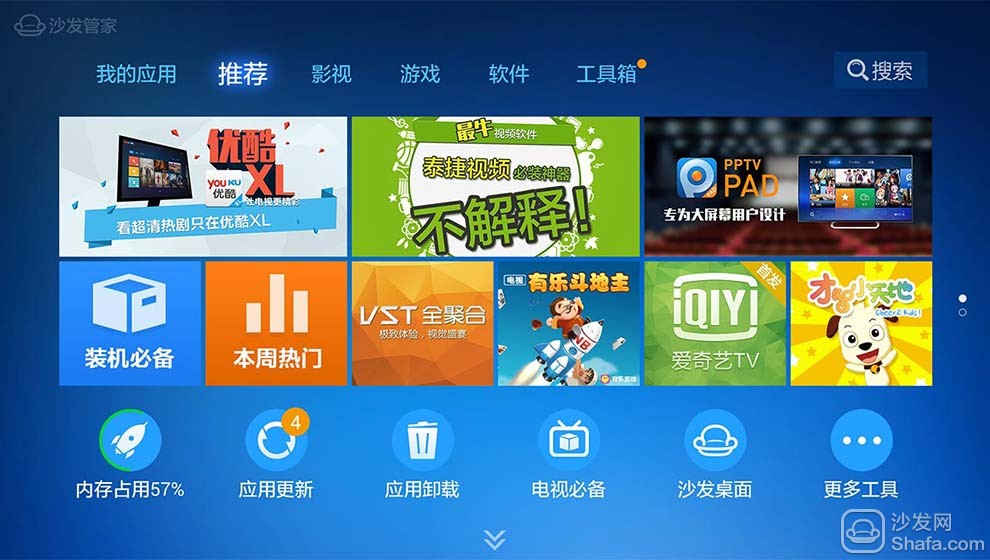Abstract: Trend 1: The government promotes the implementation of "Internet +++"; Trend 2: The rise of "Internet +" service providers; Trend 3: The first popular occupation is "Internet +" technology; Trend 4: The rise of "Internet +" vocational training ; Trend 5: The platform (eco)-type e-commerce is again favored.

Judging from the status quo, "Internet +" is in its infancy, and it is a theoretical stage that has been talkative but has not been implemented. All areas will do some argumentation and exploration for "Internet +", but most businesses will still be in a wait-and-see stage. From the perspective of exploration and practice, Internet merchants will take the initiative over traditional enterprises. After all, these merchants continue to use the “Internet +†to change more industries. They have enough experience to follow and can copy and transform their experience. Explore other regions, and continue to integrate more fields, continue to expand their own ecology.
What is really difficult to transform the Internet+ is those industries that are very traditional, but this does not mean that traditional companies do not try to make the Internet. Many traditional enterprises have begun to try to market their Internet in the past few years. Most of them rely on B2B, B2C, and other e-commerce platforms to realize the expansion of their online channels. More offline companies still stay in the stage of information promotion and promotion. They may not, dare not, or cannot try out online marketing, because they cannot find a suitable solution to the conflicts between offline and online channels. problem. There are also some merchants who make their own shopping malls, but not too much success. However, self-owned brands, apparel and snack products sold through the e-commerce platform have already found a way for e-commerce.
Contrary to traditional enterprises, under the current “National Entrepreneurship†era, more and more projects are being integrated with the Internet. Since the birth of these projects was the “Internet+†form, they do not need to be like traditional enterprises. Transformation and upgrading. "Internet +" is to promote the creation of more Internet entrepreneurial projects, thus eliminating the need to spend manpower, material resources and financial resources to study and implement industrial transformation. It can be said that every social and business stage has a normal state and development trend. The pre-statement of the “Internet+†is the background for millions of companies needing transformation and upgrading, and the latter development trend is the outbreak of a large number of “Internet+†models. And the "breaking and standing" of traditional enterprises.
This article attempts to combine the Internet's normal state of online and offline, to make a prediction of the "Internet +" development trend, hoping to inspire friends who are concerned about "Internet +".

Trend 1: The government promotes the implementation of Internet +
The "Internet Plus" is a national one. Just like the "three represents," local governments will propose building a master plan, and then bid or outsource it to a service-oriented company that can help companies transform themselves. In the long-term "Internet +" implementation process, the government will play a role as a leader and promoter.
The first is to find those companies that are in line with the policies and do a good job and set a benchmark for them to play an exemplary role.
The second is to tap those companies with potential and develop them into "Internet+" enterprises in the future.
The third is to combine the actual situation in different regions, establish an “Internet+†industrial park and incubator that will be upgraded and grounded, and integrate local resources to create a group of companies with Internet thinking.
Fourth, the introduction of "Internet +" technology, including the regular invitation of relevant personnel for the training of Internet companies for local businesses, as well as the retraining of on-the-job employees.
Fifth, linking resources, establishing long-term relationships with major Internet companies for information, help, and talent exchanges. In the exchange, Internet companies and traditional enterprises can communicate with each other to facilitate further cooperation.
Trend 2: The rise of "Internet +" service providers
Then there will be a large number of third-party service companies between the government and the enterprises. These enterprises may be dominated by Internet companies, but it cannot be ruled out that some traditional enterprises will also be counterattacked as "Internet +" service providers. In fact, from a service perspective, the transformation of traditional enterprises into "Internet +" service providers is also a transformation. This is a role similar to an intermediary who does not themselves engage in the production, manufacture and operation of Internet+traditional companies, but they will help both online and offline collaboration. More is to do the docking work between the two sides, and the profit method is the service fee and various value-added service fees after successful connection between the two parties.
These value-added services may be training, recruitment, resource search, program design, equipment introduction, workshop transformation, etc. The initial "Internet +" service provider is a single operation, and later it will develop into a complex, and does not rule out the platform-type enterprise that will later develop into a pure Internet model. The areas involved in third-party services include big data, cloud systems, e-commerce platforms, O2O service providers, CRM and other software service providers, smart device vendors, robots , 3D printing, and so on.
Trend 3: The first hot occupation is "Internet +" technology
The first popular career in the "transition dividend" period will be "Internet +" technology. Due to the needs of the society and the industry, it will spawn a large number of professional and technical practitioners. The composition of this professional group will be mature technicians and operators, and more staff through training. Engaging in the work of "Internet +" service providers requires everyone to have an overall planning idea. They can work on the "Internet + total solution" and then have a specific and special field, such as operations and technology. Continually extending down to match traditional businesses in the offline. Even "Internet +" service providers are required to provide each company with several service representatives, and staff members "commercially resident" or "standing in posts" to provide one-on-one services for enterprises.
Trend 4: The rise of "Internet+" vocational training
The government and enterprises also need more talents who understand the “Internet Plusâ€, and there will be outbreaks of professional online and offline education on the “Internet Plus†training and special training. In the field of online education, vocational education has always been a very popular type of education. At the same time, the market share also accounts for a large amount, and every year there will be great progress. In the “Internet +†round of boom, the specific job of each job can be specifically subdivided for the rise of Internet + vocational education. In fact, these trainings are also positions of Internet companies. Traditional companies want to change their corporate structure and need more professional skills. The "Internet +" vocational training is aimed at two groups. One is the training of employees in traditional enterprises, and the other is training for those who want to engage in the industry.
Trend 5: Platform (eco)-type e-commerce is favored again
In the area of ​​e-commerce, platform-type e-commerce and eco-type E-Commerce Clubs have attracted wide attention, including large-scale platforms and local platforms. No matter whether it is Taobao, Jingdong or a small-scale shopping mall in a certain place, there will be more traditional enterprises to engage with them. Even these platforms will set up an independent "Internet +" service company and go deeper into the company. For traditional enterprises, more companies will choose to join a platform or ecosystem in the initial implementation of transformation. Firstly, it can accumulate some resources from the platform or ecology and learn its operating model. Secondly, it can avoid the failure of self-provided platform operations. With platform or ecology, we can also better recognize our own resource advantages and inadequacies. Through cooperation with other businesses, we can understand the overall industrial chain layout and establish a pattern view.
This is conducive to the traditional enterprises to find a breakthrough point for transformation, in order to be able to use the point later, and the enterprise itself may also develop into an ecological environment. Of course, the platform or ecology is not just a certain degree of integration of online and offline resources, it can also create a platform. After more platforms or ecosystems emerged, the “Internet +†needs to be connected with the ecology and the platform, which is more conducive to the overall upgrading of the industry.
Trend 6: The supply chain platform is more valued
The supply chain platform will be the top priority. Merchants that specialize in designing and researching the supply chain will become the service providers that constitute the main part of the new business model of traditional enterprises. This is something that every company that accepts the “Internet Plus†should follow. The fundamental transformation of enterprises and industries is the Internetization of supply chains and the optimization and upgrading of supply chains. For a traditional enterprise, the personnel structure can become as flat as a traditional enterprise, technicians can also be installed, and the assessment system can also follow the example of the Internet company. However, the transformation of the lower-level supply chain is a very difficult problem.
The supply chain involves various important factors such as logistics and cash flow to maintain business operations. Many traditional businesses are fundamentally unable to transform them now. The traditional supply chain model is relatively inefficient, and the traditional enterprise after the Internetization is bound to be dragged down by it. Therefore, “Internet +†requires that some professionals who specialize in the design and transformation of supply chains come forward to serve the needs of enterprises that require transformation and upgrading.

Trend 7: O2O will become the "Internet +" company of choice
O2O will be highly valued, and O2O has become the topic of current business discussions. It is only that O2O is not a business model but a form. Many traditional enterprises can use this method to further transform their existing business models. At the same time, as a new form of business on the connection line and offline, it will become the first choice for the majority of traditional enterprises. O2O-related information companies and research institutions will be highly valued and enthusiastic. After the "Internet Plus" was proposed, many thought that O2O had no place under the general trend of integration of online and offline industries. This view is that Viagra does not agree.
As a commercial form of professional research on online and offline connections, many traditional companies, especially handicrafts, have found a suitable model for the development of enterprises. This model is exactly what the “Internet+†model needs to learn from. The case of a large number of O2O companies can provide experience for the traditional enterprise steering, and can also provide ideas for Internet companies to integrate traditional enterprises. Next, O2O will be a required course for each traditional enterprise, and it is also a topic that online companies must study. At the same time, Viagra believes that the "Internet +" is being introduced by the government, and various O2O-based business models are its references and can be considered a driving force for change.
Trend 8: Entrepreneurial Ecology and Incubator Deep Plowing “Internet Plusâ€
At present, there are more than 1,200 incubators nationwide, and 2015 will be the first year of incubator integration. At the same time, in the next development, the incubator will push the “Internet Plusâ€, and the new model of integration of traditional enterprises into the “Internet+†will be the same as the high-tech industry. Another reason why the “Internet Plus†was introduced as a policy is that full-time entrepreneurship is the era. Most entrepreneurial projects are more or less related to the mobile Internet. The fiery business of smart hardware, online education, O2O and other areas has indirectly promoted the emergence of new materials, sensors, integrated circuits, software services and other industries. There are also enough entrepreneurial projects in these fields.
At present, entrepreneurial projects around the Internet have formed an ecological environment. The relevance of entrepreneurial projects is a context. This context can sort out and integrate the entire industry chain of certain industries; the Internet of Things is another context, and this line puts intelligent hardware into account. , wearable, biomedical and other fields are connected. The entire entrepreneurial ecosystem revolves around the mobile internet. The government has taken the lead in launching the “Internet+†policy, which is precisely to promote the creation of more Internet entrepreneurship projects. With the encouragement of policies, there will be more Internet entrepreneurial projects, and traditional entrepreneurial projects will become better and better, so as to solve the upgrading of the industry. Therefore, the next incubator will be the main "Internet +" project.
Trend 9: Accelerating M&A and Acquisitions of Traditional Enterprises
It is not uncommon for internet companies to invest in traditional companies that hold shares. In fact, there are also many cases in which traditional companies invest in or acquire Internet companies. In the past, traditional business transformation research, Viagra believes that equity and mergers and acquisitions are the simplest and fastest way for traditional companies to Internet. This is more direct and effective than the traditional high-paying e-commerce operation team or the introduction of high-tech talents. The introduction of teams and talents also takes a long time to run in with the company's original structure and operating model, and not all companies are suitable for directly changing the operation and maintenance model. of. The direct acquisition of Internet companies, the company's entire business packaged with the traditional enterprise docking, is equivalent to the outsourcing of the Internet business but it is also an internal company, the two sides of the business and employees are not subject to conflict, can be described as a multi-purpose.
Do not look at how many billions of dollars worth of Internet companies are, and there are so many Internet companies with a market capitalization of more than US$50 billion. There are many more offline capitals than online. A large number of private capital has accumulated over a long period of time. In the past, these capitals were invested in traditional industries such as banks and energy. In recent years, with the declining and stagnant physical industries, these companies with large amounts of capital have begun to focus on the Internet. Many funds that focus on Internet investment have There are traditional businesses. The offline capital investment line is conducive to the optimization and redistribution of private capital. The “money and money†investment model has now become morbid, and illegal capital raising such as P2P and other sensational criminals is still increasing. If this part of the money can be turned into ventures The project will better promote the overall transformation of society.

Trend 10: Promote the rapid landing of some Internet companies
Although "Internet +" is more a fusion of the Internet and traditional enterprises, in fact, many Internet companies are also seeking to enter the traditional market, and these enterprises also need to be transformed. The clearest example is the tens of thousands of mobile applications currently used. These apps have smashed the PC Internet market and accumulated more than 10 million or even hundreds of millions of users in a short period of time. However, the lack of a better business model means simply finding Less than a way to make money. There may be many users, and the activity is also very high, but it is impossible to realize directly, or the user's spending power is too bad. Basically every APP is a representative of an industry or its subdivisions. When there are profitable problems that cannot be solved online, these merchants have a tendency to fall underground. If you sing to try KTV yourself and cooperate with offline KTV, Ink Weather began to do hardware business cooperation with air detection and air purification hardware.
If we say that in the past it was the Internet companies that took the initiative to find traditional businesses, the conditions discussed would be very passive, and the “Internet Plus†would allow traditional companies to take the initiative to find Internet companies. For example, on the issue of "treating warts," manufacturers with serious pollution in manufacturing and traditional testing equipment are likely to find Internet companies to provide overall solutions and product cooperation solutions. The "Internet +" policy can contribute to the things that these businesses could not do or dare to think about in the past. This is also a trend in the future.
The future trend of “Internet+†discussed in this article is basically related to policies, industrial connections, entrepreneurship, and capital. It is also relatively macro. There may be more trends in each industry and subdivision areas, but in general they are inseparable from the social and industrial environment. In fact, no matter what industry you are in, in addition to these trends described by Viagra, it is necessary to combine it with your own industry, and you may have a better prediction of the future development of the company.

Rubber Milling Machinery / Reclaimed Rubber Machiney
Stator Winding Line Co., Ltd. , http://www.windingline.com